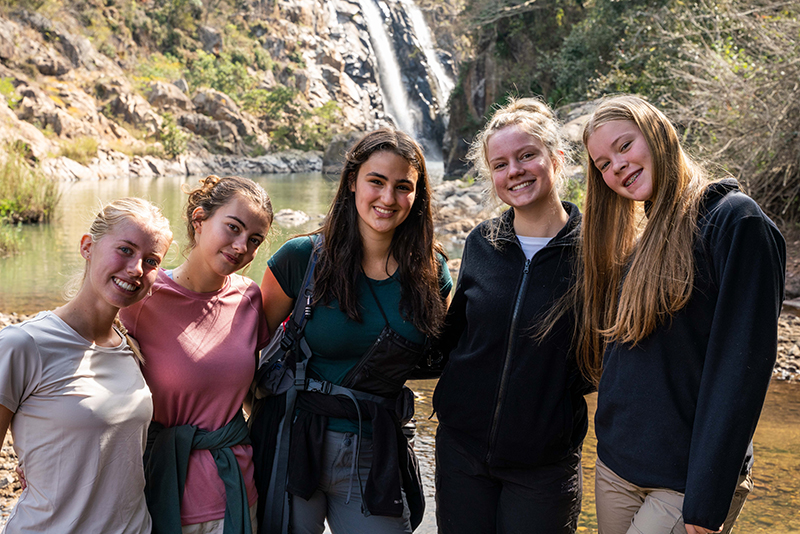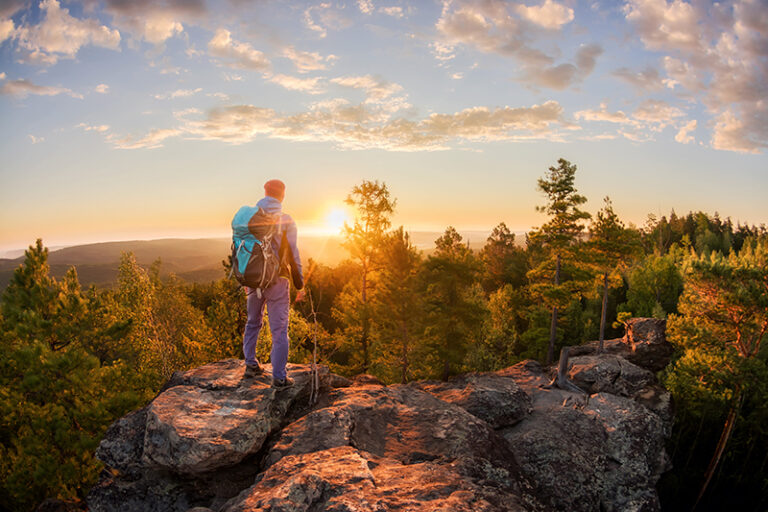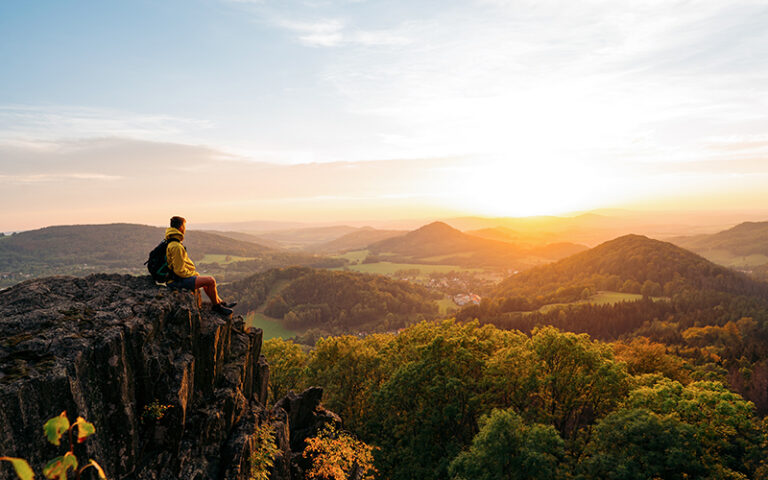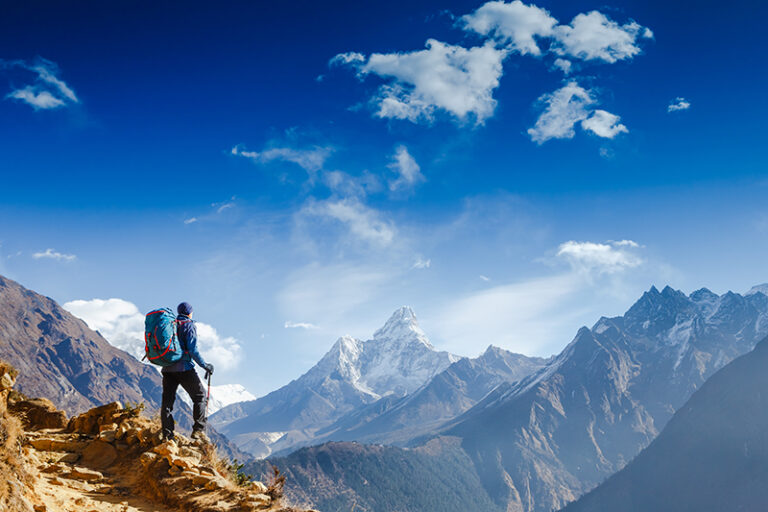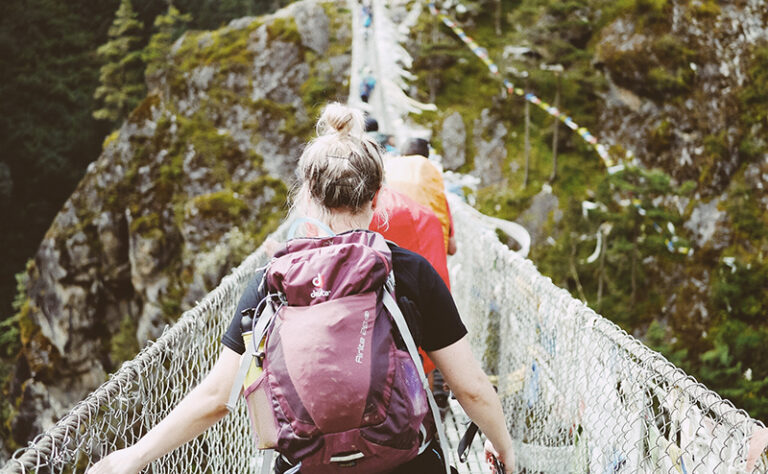Embarking on a school expedition can be a daunting prospect. There are new languages and cultures to navigate, physical challenges such as treks to take on and potential emotional rollercoasters resulting from being away from home. Add to that the prospect of having your period in an unfamiliar environment, and suddenly you’re thrown way out of your comfort zone.
But, with proper planning, it doesn’t have to be this way. Having your period abroad can have positive effects, such as bringing your team closer together and learning about different cultural attitudes surrounding them.
One of our Leaders who has seen this in action is Gill Houlsby. “Periods on expeditions are everyone’s issue – it’s part of looking after each other,” she says. “Managing periods on expedition is part of self-care for you and your team in the same way that eating well, drinking enough and sleeping well is. Why not bring some extra period products with you and be ready to share them – and I’m talking to everyone here, not just the girls. Being there for someone if they get caught short is a powerful way of being part of a team and showing you care.”
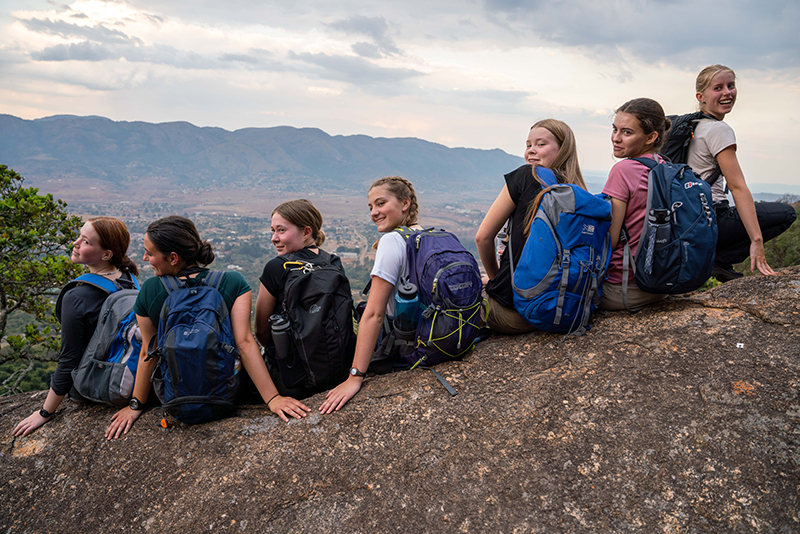
Be Prepared
For Gill, and many of our Leaders, the number one tip is: be prepared for your period – even if it isn’t due. It’s common for the strange routines of travel to bring on periods when you aren’t expecting them, to delay a period, or for you to miss one completely. Some Leaders report female students’ cycles “syncing” while on expedition. Changes to your emotions, physical health, sleep, diet, and stress hormones can all have an impact, as can long-haul travel and big changes in time zones, so it’s worth always being prepared.
In some destinations, it can be tricky to find sanitary supplies – so pack more than you think you’ll need. Bring an emergency supply in your hand luggage, and consider the temperatures and environments you’ll be in. For example, if it’s hot and humid in your destination you might want to change your menstrual products more frequently.
You won’t always be near a toilet when you need to change your sanitary products. You should find somewhere suitable (behind some rocks or a tree, for example) that is at least 100m away from a water source to change your products. You can take a friend as a lookout if that makes you feel more comfortable! If someone needs a ‘nature wee’ and to change a tampon or pad on a trek, not feeling pressured to rush can make the whole experience more positive.
Hannah Turnball had got creative when one of her students was caught short halfway through a three-day jungle trek. “I was out of spare sanitary products and toilet roll, so we had to create a makeshift pad,” she said. Hannah rummaged through her first aid kit and found a tubular bandage to use. She said: “The student was really mature about the whole situation and understood that we had to make do with what we had. Luckily it was a short day’s trek, so she wasn’t uncomfortable for long. But this did make her think about what we have at home and how easy we have it. And it made me realise that I need to pack more extras!”
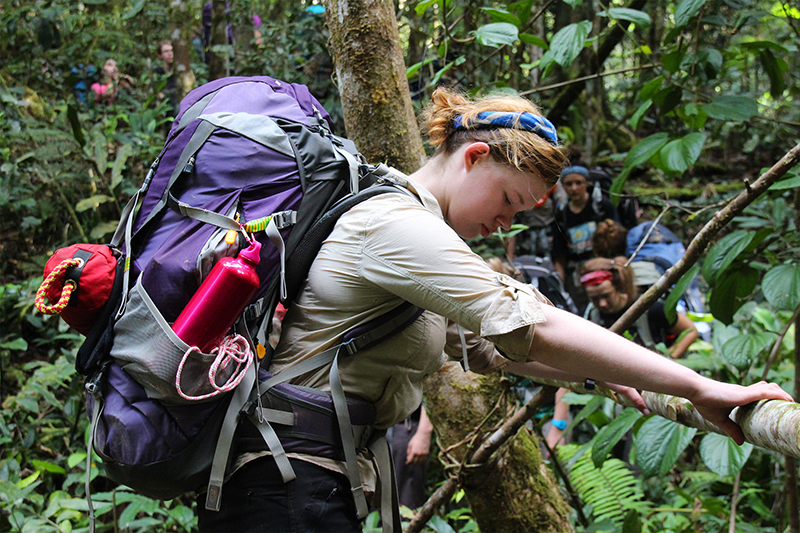
Tips for Towels & Tampons
If you’re using disposable sanitary products try to pick biodegradable options where possible. Bring a couple of zip-lock bags, one for clean products and one for used ones (as you may not always be somewhere that you can throw your waste away). Have some sustainable dog poo bags handy, too. Dry tea bags can absorb odours – or bring a scented spray. You’ll need to carry all of your waste until you reach a suitable disposal point.
Menstrual Cups & Period Pants
Menstrual cups and period underwear are great sustainable options that remove the need to dispose of waste in remote areas. Get used to using a cup before you travel and take a backup supply of sanitary towels. You’ll be able to empty your cup and rinse it out with drinking water as you go, but remember to have hand sanitiser and clean drinking water handy. When emptying your cup, bury any waste at least 100m from a water source.
If using period pants, bring plenty of spares and a zip-lock bag or waterproof pouch to carry used underwear in. You’ll have limited opportunities to wash and dry them on the go, so consider how many pairs you need to bring.
Of course, good hygiene is of paramount importance so make sure you wash your hands before and after changing sanitary products. Hand sanitiser works well if you aren’t able to access safe water to wash your hands, and wipes can also be a good option.
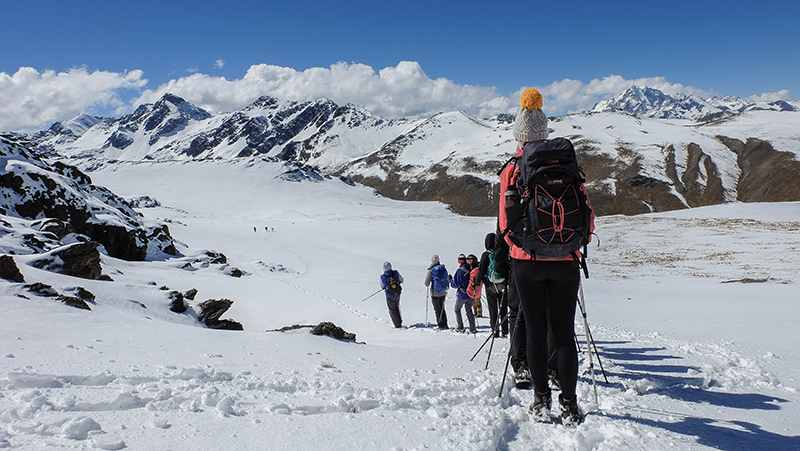
Pills & Pain Management
Some participants choose to take medication to delay them from having their period whilst they are travelling. Please note that World Challenge does not recommend or advise participants on what’s right for an individual, so if this is an option you’re considering please speak to a medical professional first. It can take time for your body to get used to being on hormonal medication, so start any medication a few months before your trip, if this is what you decide is best for you – and pack emergency sanitary supplies as a backup.
If you experience pain during your period, pack your regular painkillers, making sure your Leader or team members know if you have taken any. Small heat packs are a great alternative to hot water bottles to ease pain.
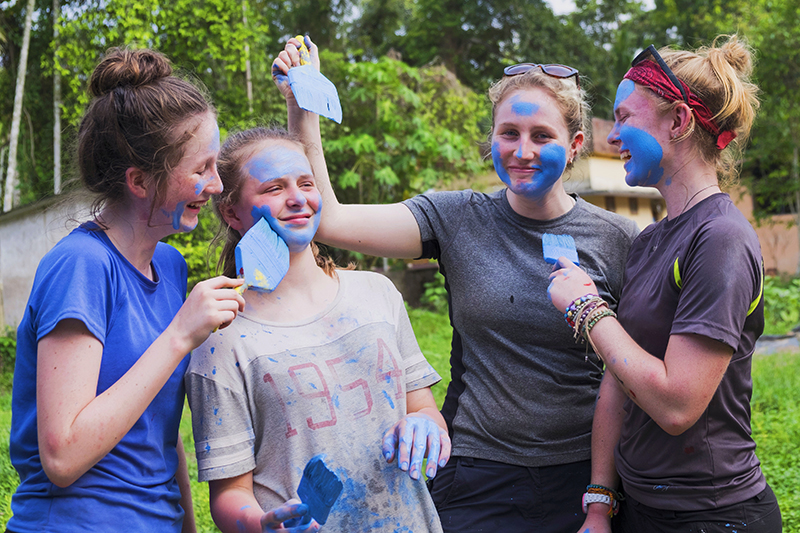
A Positive Period
Students cycling together can have positive effects, as Emma Burrows witnessed while leading an expedition in Mongolia. Recalling an evening beside the campfire in a remote part of the country, she said: “The majority of the females in the team had come on their period…at the point in the expedition they least wanted to! Typical!”
The female students took control of the fire, allowing the boys in the team to settle into bed. They started burning the sanitary products they’d been carrying around – and an impromptu ritual began. Emma said: “They decided that when they put something on the fire, they’d say something they were going to let go of or change when they went back home.
“All of the girls realised they’d managed way better than they thought they would, had all built resilience, come together as a team and could laugh about it. There were positive reflections and chats that made them consider how other women living in rural Mongolia managed their periods.”
Gill Houlsby agrees that having your period on a school expedition can provide a valuable learning opportunity for students. She encourages her students to find out how local people in the country they are visiting deal with theirs. “Globally, access to menstrual products and education about menstruation varies substantially,” she says. “Some parts of the world do not have period products or places available for girls to change their sanitary products, meaning they are not able to attend school while on their period. Women all over the world get periods every day – you don’t need to be afraid of having yours.”
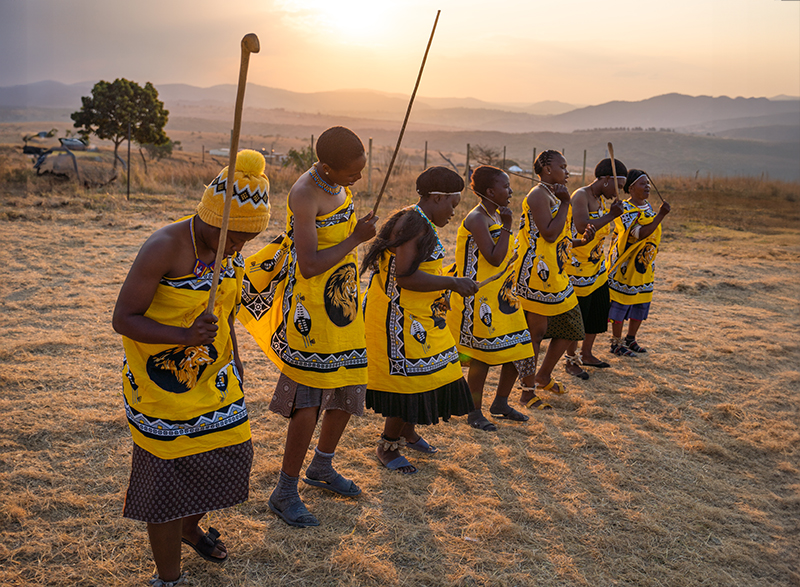
Written by Ellie Ross
